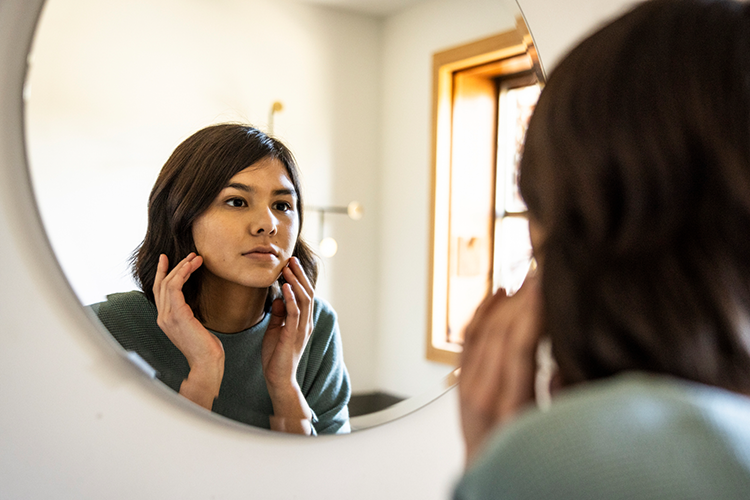
May 2, 2025, 3:45 p.m.
The Hospitalist Team
For many teens, acne is more than just a few breakouts. It's a frustrating, emotional challenge that can affect their confidence, social lives, and self-esteem. As a parent, watching your child struggle with acne can be tough, especially when you know how common it is and how temporary it may be. But with the right support, care, and a little patience, teens can manage acne and feel better about their skin.
Why acne is more prevalent during the teen years
Acne is incredibly common during adolescence due to hormone changes that increase oil production in the skin. Combine that with clogged pores, bacteria, stress, or even certain skin care products, and breakouts happen.
While acne is often viewed as a normal part of growing up, that doesn't make it easier for teens to cope, especially when they're already navigating body changes, peer pressure, and a culture that often filters or retouches every photo.
The link between skin and self-esteem
Teens can be incredibly self-conscious about their appearance, and skin issues are front and center. Even mild acne can lead to feelings of embarrassment, anxiety, or withdrawal from social activities. Some teens avoid photos, feel awkward in one-on-one conversations, or may become more irritable or quieter than usual.
If your teen brushes off their feelings, but you notice changes in mood, behavior, or how they interact with others, it is worth having a conversation.
Ways to support your teen
Start by being a calm, nonjudgmental listener. Avoid minimizing your teen's concerns by brushing it off as just a phase or reminding them that everyone gets pimples. While those comments might seem reassuring, they can come across as dismissive. Instead, acknowledge that you understand that their acne is bothering them and validate their frustration. Let them know you're open to listening and willing to help them figure out what to do next.
Offer to help them schedule an appointment with their doctor or a dermatologist. Sometimes, just knowing there are treatment options can provide a sense of relief and control. Remind them that acne doesn't define them. Talk about their strengths, interests, and personality traits that make them great. This helps shift the focus away from appearance and back to what truly matters.
Basic acne care tips for teens
While acne treatment plans should be tailored by a provider, here are a few general tips that often help:
- Wash gently, twice a day with a mild cleanser. Scrubbing too hard can irritate skin.
- Hands off! Picking at pimples can cause more inflammation and even scarring.
- Choose noncomedogenic (won't clog pores) makeup and skin care products.
- Stick with it. Most treatments take several weeks to show results, and switching too often can backfire.
- Don't forget their mental health. If acne is affecting your teen’s mood, confidence, or social life, bring it up with their doctor. Treating the emotional impact is just as important.
Key things to watch
If acne is severe (painful cysts, widespread breakouts, or signs of scarring), or if your teen is feeling increasingly isolated or upset because of their skin, it's time to involve a medical professional.
Treating acne may involve prescription medications or addressing underlying factors such as hormones, stress levels, or dietary triggers. A personalized plan from your health care provider can help determine what works best for your teen's skin and overall lifestyle.










